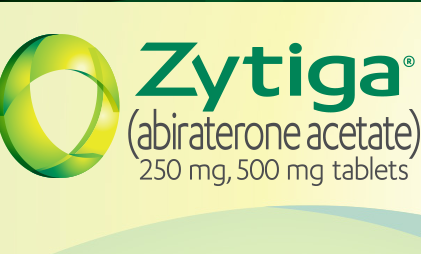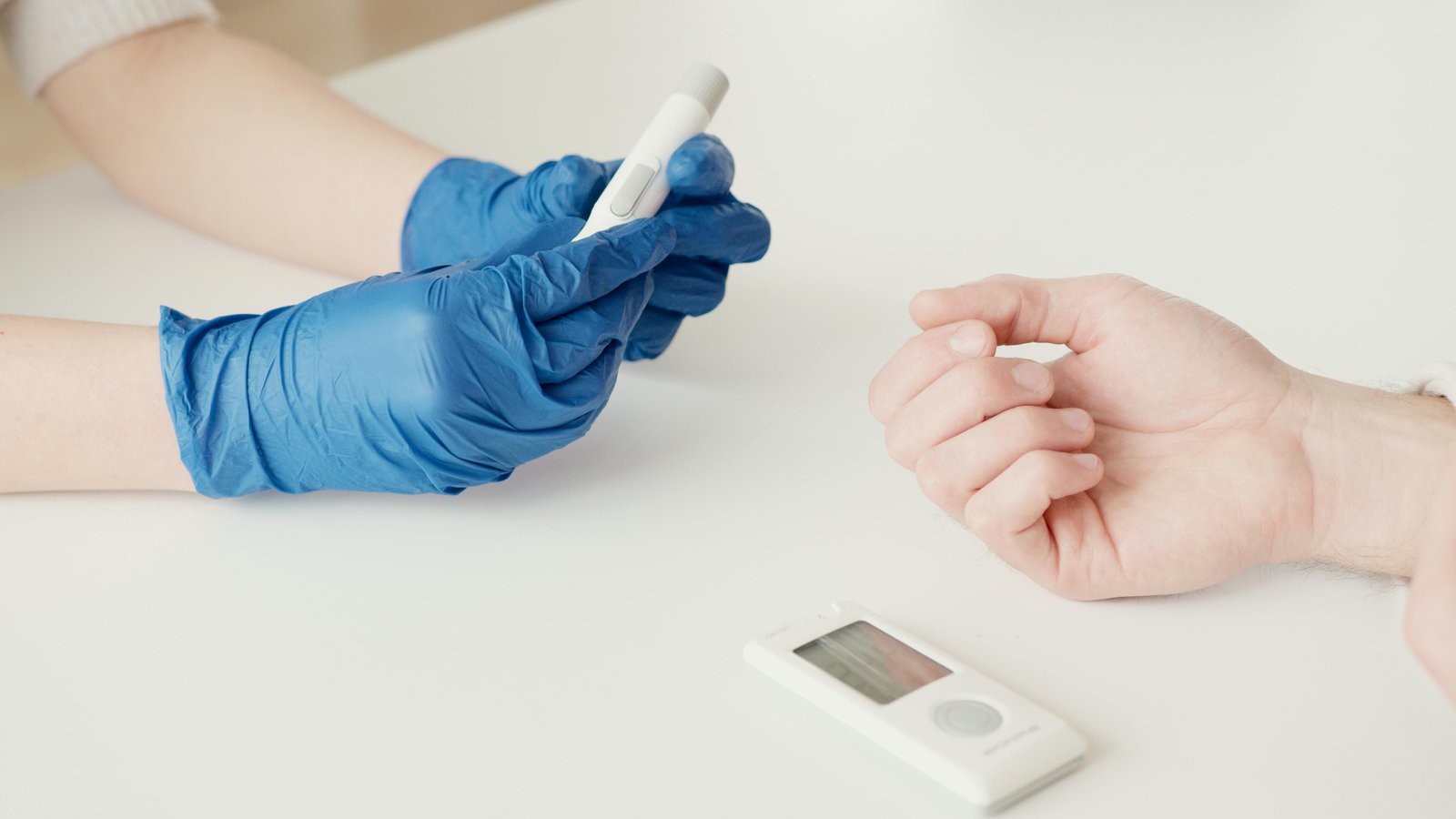Abiraterone acetate is a prodrug of abiraterone (Zytiga). It blocks the production of male hormones by inhibiting the enzyme cytochrome P450 c17 (CYP17) in the testis, adrenal glands, and cancer cells of the prostate.
Abiraterone ( Zytiga) is a potent drug with significant antitumor activity in patients with castration-resistant metastatic prostatic carcinoma. It can be administered as monotherapy or in combination with glucocorticoids.
Abiraterone acetate treatment improves life expectancy in patients with prostate cancer:
In a phase-3 trial, Abiraterone acetate was found to improve survival in patients with metastatic castration-resistant prostate cancer who had received chemotherapy.
A survival benefit was also seen in patients who had not received prior chemotherapy with asymptomatic or mildly symptomatic metastatic castration-resistant prostate cancer.
It is important to note that patients with the genetic mutations "androgen-receptor splice variant 7 messenger RNA (AR-V7)" may be resistant to Abiraterone and enzalutamide (Xtandi).
Furthermore, sequential treatment with enzalutamide (Xtandi), a novel second-generation non-steroidal anti-androgen, has shown significant benefit in patients who progress despite abiraterone treatment.
Apart from abiraterone and enzalutamide, the three other non-hormonal agents that are associated with increased survival in patients with prostate cancer are:
- Docetaxel
- Cabazitaxel
- Sipuleucel-T
How is abiraterone acetate effective after castration?
Although castration results in a reduction in testosterone levels, androgen production is increased by the adrenals and the tumor cells. Furthermore, there is an androgen-receptor up-regulation and increased sensitivity of the cells to testosterone.
Why prednisolone is given with abiraterone acetate?
Abiraterone blocks the adrenal androgens by blocking the enzyme cytochrome P450 c17 (CYP17). This results in an increase in the adrenal mineralocorticoids via the negative feedback mechanism causing hypertension, hypokalemia, and hypernatremia.
Adding prednisolone to abiraterone treatment blocks the production of excess mineralocorticoids by blocking the production of ACTH via the negative feedback mechanism. Thus, prednisolone alleviates some of the important side effects of abiraterone treatment.
Abiraterone dose in Adults:
Metastatic castration-resistant prostate cancer:
- 1 gm orally once a day with 5 mg prednisone given twice daily orally.
Metastatic castration-sensitive prostate cancer:
- 1 gm orally once a day with oral 5 mg prednisone once daily.
ZYTIGA (Abiraterone) is best for people who have undergone orchiectomy or in combination with a GnRH analog (medical orchiectomy).
Zytiga dose in kidney disease:
Adjustment in the dose is not necessary.
Abiraterone dose adjustment in liver disease:
-
Mild hepatic impairment (Child-Pugh class A):
- The same dose should be given as in patients without liver disease.
-
Moderate hepatic impairment (Child-Pugh class B):
- The dose is reduced to 250 mg orally once daily.
- Do not use it if the ALT and/or AST is greater than 5 times the upper limit of normal (ULN) or total bilirubin is greater than 3 times the ULN.
-
Severe hepatic impairment (Child-Pugh class C):
- Avoid using Abiraterone in patients with severe hepatic impairment.
Hepatotoxicity during treatment:
U.S. labeling:
-
ALT and/or AST exceeds 5 times the ULN or bilirubin exceeds 3 times ULN:
- Withhold the treatment until resolution of the liver function tests to the baseline or ALT and AST are at least less than 2.5 times the ULN and total bilirubin is down to less than 1.5 times the ULN
- Once the LFTs improve, the treatment may be restarted at a lower dose of 750 mg once a day.
-
Hepatotoxicity despite using the lower dose of 750 mg/day:
- Withhold the treatment until the liver function tests have returned to baseline or ALT and AST are at least less than 2.5 times ULN and total bilirubin is down to less than 1.5 times ULN
- Once the LFTs improve, the treatment may be restarted at an even lower dose than before i.e. 500 mg once a day.
-
Hepatotoxicity on 500 mg/day:
- Discontinue treatment
Canadian labeling:
-
ALT and/or AST exceeds 5 times the ULN or total bilirubin is more than 3 times ULN:
- Withhold the treatment until the LFTs have returned to baseline.
- Once the LFTs are normal, restart the treatment at a lower dose of 500 mg once daily
-
Hepatotoxicity despite a lower dose of 500 mg/day:
- Discontinue treatment
-
If during the treatment, ALT goes up to more than 20 times the ULN (any time during treatment):
- Discontinue permanently
How to administer Abiraterone acetate tablets?
It is best to take the drug on an empty stomach as food might impair its absorption. Take it at least one hour before a meal or two hours after a meal. Swallow the tablet as a whole without crushing or chewing it, with plain water.
Pregnancy Risk Category X
It is contraindicated in pregnant women and those who are breastfeeding.
Contraindications to Abiraterone (Zytiga)
- Individuals who are allergic to the drug
- Pregnant women
- Breastfeeding women
Warnings and Precautions:
-
Adrenocortical Insufficiency
It is administered concomitantly with prednisolone. Abrupt discontinuation of treatment can result in adrenal crisis. Similarly, in stress-like states such surgery or infection, the dose of prednisolone may need to be increased to avoid going into adrenal crisis.
-
Hepatotoxicity:
The drug is hepatotoxic. Frequent monitoring of LFTs is important. It is better to perform LFTs every two weeks for three months, and then monthly thereafter.
Patients who have a baseline hepatic impairment such as those with elevated levels of liver enzymes may be at an increased risk of severe hepatic dysfunction.
It is best to avoid Zytiga in such patients. However, those with mild hepatic impairment can be monitored with frequent LFTs and reducing the dose.
The treatment should be permanently discontinued in patients who develop hepatic dysfunction with ALT or AST rising above 20 times the ULN and Bilirubin rising 10 times above the ULN.
-
Mineralocorticoid excess
Abiraterone use has been associated with an increased mineralocorticoid activity manifesting as:
- Hypertension,
- Hypokalemia, and
- Fluid retention
This effect is because of the CYP17 inhibition (including grade 3 or 4 events).
These adverse events are less common when combined with prednisolone administration.
-
Cardiovascular disease
Patients with heart disease should not take Zytiga (Abiraterone) as it can exacerbate the symptoms of heart failure and simultaneously cause hypertension, hypokalemia, and fluid retention.
It should not be used in conjunction with drugs or foods such as Licorice that may further cause hypokalemia and raise blood pressure.
Cardiac patients with an LVEF of less than 50% should avoid taking it.
-
Hepatic impairment
Zytiga can be hepatotoxic, so patients with liver disease and those with abnormal liver function tests at baseline should avoid it.
Abiraterone side effects:
The most common adverse reactions (≥10%) are:
-
Cardiovascular:
- Hypertension
- Leg swelling
-
Central nervous system:
- Tiredness
- Difficulty falling asleep
-
Endocrine & metabolic:
- Elevated triglycerides
- Raised blood glucose
- Hypernatremia
- Hypokalemia
- Hypophosphatemia
- Hot flashes
-
Gastrointestinal:
- Constipation or Diarrhea
- Heartburn
- Dyspepsia
-
Genitourinary:
- UTIs
-
Hematologic & oncologic:
- Reduced Lymphocytes
- Bruises
-
Hepatic:
- Increased LFTs (ALT, AST, and Bilirubin)
-
Neuromuscular & skeletal:
- Joint pains and swelling
- Muscle pains
-
Respiratory:
- Cough
- Respiratory infections
- shortness of breath
Less common side effects of Abiraterone:
-
Cardiovascular:
- Irregular cardiac rhythms
- Chest pain/ discomfort
- Heart failure
-
Central nervous system:
- Headaches
- frequent falls
-
Dermatologic:
- Rashes
-
Genitourinary:
- Hematuria
- groin pain
- increased urinary frequency
- increased frequency of urination at night
-
Neuromuscular & skeletal:
- Fracture
-
Miscellaneous:
- Fever
Monitoring Parameters:
ALT, AST, and bilirubin (before starting the treatment, after 2 weeks, and every 3 months thereafter).
Patients with moderate hepatic dysfunction should monitor LFTs before starting therapy. LFTs should be monitored at baseline, then every two weeks for the first three months, then every two weeks for the next three, and finally every month thereafter.
Hepatotoxicity can occur even in lower doses. Patients must restart treatment once the LFTs have returned to baseline. Monitoring of liver functions should be increased (every 2 to 3 months, then every month thereafter).
Monitor serum potassium at baseline, and every month thereafter.
It is not necessary to monitor androgen levels (testosterone).
Monitor adrenal insufficiency, blood pressure, and fluid retention.
Zytiga (Abiraterone) Mechanism of Action:
ZYTIGA is the brand name of abiraterone acetate. The drug is converted in the body to its active form abiraterone.
Abiraterone blocks the production of testosterone which is the primary stimulus for cancer cells of the prostate. Specifically, it blocks the production of testosterone or androgens by inhibiting the enzyme 17 alpha-hydroxylase/C17.20-lyase (17 a-hydroxylase/CYP17).
This enzyme is abundant in the testicular, adrenal, and prostatic tumor tissues and is required for the production of androgens.
Abiraterone may also inhibit CYP17, which can lead to increased production of mineralocorticoids in the adrenal glands.
Abiraterone is an effective treatment for patients with prostate cancer who are sensitive to androgens.
In addition, since the drug also inhibits the androgens that are produced in glands other than the testis, Abiraterone may be effective in those cases who are resistant to orchiectomy and GnRH analogs which primarily lower the testicular androgens.
It is 99 percent protein-bound, and 88% is excreted through feces.
Abiraterone manufacturer: Janssens Pharmaceutical Companies
Abiraterone acetate tablets Brand Names (International)
- Zytiga Tablets
- Abiron
- Aizerone
- Xbira
- Yonsa
- Zytica
- Zytiga
- Zytix
- Zyvalyx
Abiraterone acetate cost:
-
Abiraterone 250 mg Tablets price:
- $91.88 - $97.21 each tablet
-
Yonsa 125 mg oral Tablets price:
- $94.85 each
-
Zytiga 250 mg Tablets price:
- $108.87 each
-
Zytiga 500 mg Tablets price:
- $217.74

 for multiple myeloma.webp)
.jpg)
